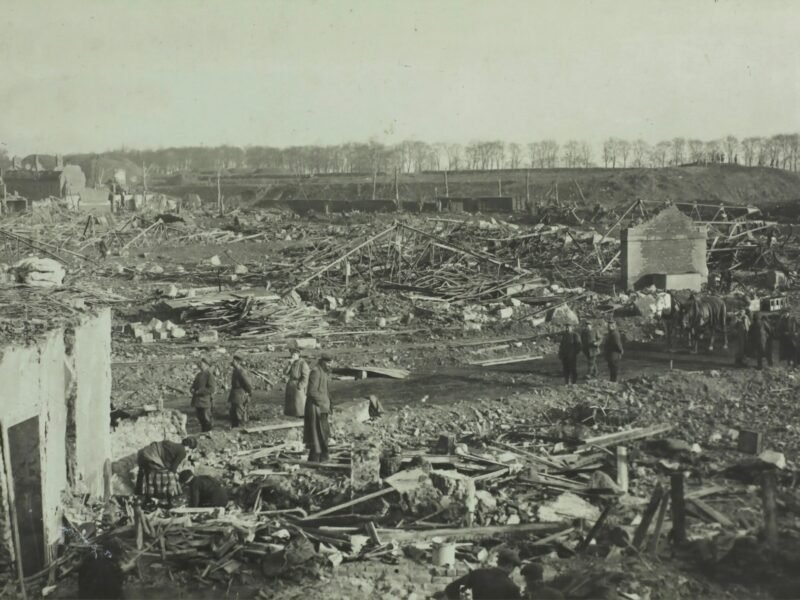Last week I served as a voting delegate to the annual synod and missions conference of the Anglican Diocese of the Living Word. The diocesan bishop, The Rt. Rev. Julian Dobbs, addressed the delegates as he does every year. This year Bishop Dobbs’s pastoral address made somewhat of a stir. Author Rod Dreher was present for our proceedings, and he spoke as well as blogged about the Bishop’s address at The American Conservative. Dreher’s keynote speeches were heartfelt and faithful to his own commitments regarding traditional Christianity. His anecdotes and excerpts interacting with post-Communist Christians about their experiences under totalitarian regimes were particularly interesting. The Rev. Lee McMunn’s sermons reaffirmed the Diocese’s real commitment to the scriptures as the foundation of truth and the final and supreme determinant.
The Bishop spoke clearly and unambiguously during his pastoral address about issues that are often seen as “the culture war” and outside the purview of the institutional church. He denounced abortion in unswerving tones; the delegates gave their only standing ovation of the speech to the Sisters of St. Mary, an Anglican religious order who has sued the state of New York after they refused to cover abortion in their health insurance plans.
The Anglican identity of the synod was reinforced regarding political theology. Dobbs repeatedly asserted that the United States was a force that protected human freedoms and Christian liberties. Anglicans could not, the bishop declared, be indifferent to the political character of the American republic or its leadership. The inheritance of the English Reformation is a fundamentally magisterial one, and so Living Word, like many Anglican provinces worldwide, honors the prince—in our case the American republic—and prays for it. In what would be an undoubtedly strange scene for many American Christians, the Prayer for the State was rendered in English and in Spanish. And perhaps even more jarring, the gathered delegates—perhaps a third of them naturalized Africans or other people of color—stood and sang, hand over hearts, as the organ in Immanuel Leidy’s church belted out the national anthem. This was not an act of idolatry, but instead, a proclamation that Christ’s kingdom had conquered the United States and was using the American Union for the Lord’s purposes.
Bishop Dobbs’ commitment to the historic Protestant civil order means he and the diocese reject notions that the church cannot speak in an ecclesiastical function to cultural and social issues facing Christians. “I believe,” Dobbs said, “that it is my responsibility as your diocesan bishop to provide direction and speak clearly as the Church navigates these crucial and important matters.” The Bible was, he declared, “clear on matters of sexual identity. God created man in his own image, in the image of God he created him; male and female he created them. Any confusion of the sexes,” warned the bishop, “is a distortion of God’s created order.”
Living Word’s diverse sociological makeup makes a commitment to historic Protestant conceptions of piety’s relationship with the natural order essential for unity. The Ghanaian St. Mary’s of the Bronx was received into the diocese as well as new church plants and breakaway TEC parishes. Living Word offers a substantive commitment to scriptural truth sometimes obscured in older parishes. This commitment is best displayed in the Diocese’s church planters. Jim Salladin and Emmanuel Anglican Church, New York offer a dynamic vision of how to plant a theologically conservative and Reformed parish in the heart of a major urban area. Church plants in Ohio and West Virginia are underway with the labors of devoted young church planters committed to Evangelical teaching and sturdy, Prayer Book churchmanship.
Theological seriousness increasingly marks the pastors of Living Word. Newly ordained presbyter Steven Wedgeworth brings sophisticated engagement with the Reformation era in theology to his pulpit at Christ Church Anglican South Bend. Living Word’s Canon Theologian Henry Jansma recommended substantive books on prayer, theology, and sin that were a refreshing respite from the sentimentalist literature often pushed at Christian conferences.
As jurisdictions go, Living Word has tried to approximate historic Evangelical churchmanship. Bishop Dobbs’s commitment to the licensed prayer books and to biblically centered worship makes Living Word a learned and well-ordered diocese, and a potential home for young Evangelical laypeople and potential presbyters searching for churches that are committed to Anglican liturgy, Reformation theology, and a firm commitment to scripture and the biblical understanding of the natural order.






'Report from the Anglican Diocese of the Living Word Synod' has no comments
Be the first to comment this post!